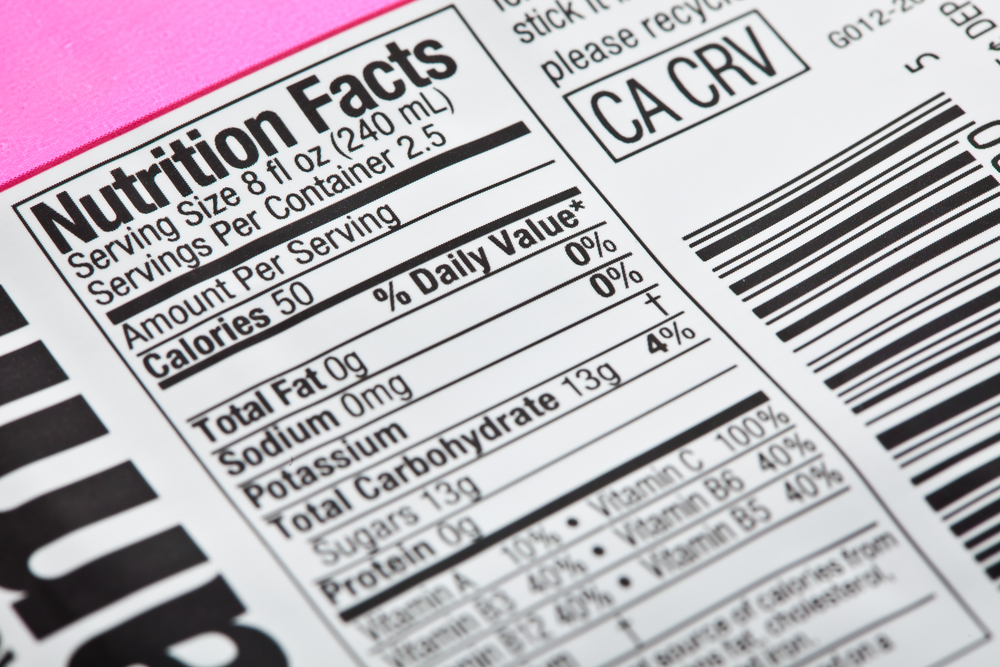Niacin, also known as vitamin B3, is a remarkably versatile and essential nutrient that plays a fundamental role in maintaining our overall health and well-being. Often referred to as the “unsung hero” among vitamins, niacin is involved in a myriad of critical bodily functions, from energy metabolism to skin health and cardiovascular well-being.
This unassuming vitamin is found in various foods and supplements, and its significance in supporting our daily lives cannot be overstated. In this exploration of niacin, we’ll delve into its multifaceted nature, its sources in our diets, its benefits, and its impact on our health, demystifying the importance of this often-overlooked member of the vitamin B family.
Niacin, also known as vitamin B3, is an essential nutrient that plays a crucial role in maintaining good health. It’s one of the eight B vitamins, and your body needs it for a variety of important functions.
Here’s a breakdown of what niacin is and why it’s important:
- Energy Production: Niacin is a key player in the conversion of food into energy. It helps your body metabolize carbohydrates, fats, and proteins, turning them into usable energy.
- Cell Health: Niacin is essential for the proper functioning of cells in your body. It’s involved in DNA repair and plays a role in cell signaling and communication.
- Heart Health: Niacin can have a positive impact on cardiovascular health. It helps lower levels of LDL cholesterol (often referred to as “bad” cholesterol) while increasing HDL cholesterol (known as “good” cholesterol). This can reduce the risk of heart disease.
- Skin Health: Niacin can improve the health and appearance of your skin. It’s often used topically in skincare products to address issues like acne and to promote a healthy complexion.
- Nervous System: Niacin is essential for the proper functioning of the nervous system. It supports nerve function and can help maintain a healthy brain.
- Digestive System: This vitamin is also involved in maintaining a healthy digestive system, particularly in the synthesis of digestive enzymes.
- Anti-Inflammatory: Niacin has mild anti-inflammatory properties, which can be beneficial for conditions related to inflammation.
You can obtain niacin from a variety of food sources, including meat, poultry, fish, nuts, and whole grains. It’s also commonly found in fortified cereals and supplements. In some cases, doctors may prescribe niacin supplements to address specific health concerns, such as high cholesterol.
However, it’s essential to get your daily niacin intake from a balanced diet whenever possible, as excessive niacin supplementation can lead to side effects. Always consult with a healthcare professional before starting any new supplements or making significant changes to your diet.
Good Sources of Niacin
Getting enough niacin (vitamin B3) from your diet is essential for overall health.
Here are some excellent dietary sources of niacin:
- Meat: Animal products are among the richest sources of niacin. Chicken, turkey, beef, and pork contain significant amounts of niacin.
- Fish: Fish like salmon, tuna, and trout are excellent sources of niacin. They not only provide niacin but also heart-healthy omega-3 fatty acids.
- Nuts and Seeds: Peanuts, sunflower seeds, and almonds are good plant-based sources of niacin. They also provide healthy fats and protein.
- Legumes: Legumes like lentils, chickpeas, and beans are rich in niacin. They are also high in fiber and make a great addition to a balanced diet.
- Whole Grains: Whole grains such as brown rice, whole wheat, and oats contain niacin. Opt for whole grain products over refined grains for maximum nutritional benefit.
- Fortified Foods: Some processed foods, like breakfast cereals, are fortified with niacin. Check the nutrition label to see if a product has added niacin.
- Mushrooms: Certain types of mushrooms, particularly shiitake mushrooms, are niacin-rich and can be used in various dishes.
- Dairy Products: Milk, cheese, and yogurt contain niacin, though in smaller amounts compared to meat and fish.
- Green Vegetables: While not as high in niacin as other sources, green vegetables like peas, asparagus, and broccoli still provide some niacin along with other essential nutrients.
- Avocado: Avocado is a unique source of niacin among fruits. It’s also rich in healthy fats and other vitamins.
It’s worth noting that the niacin content in foods can vary, and factors like cooking methods and food processing can affect niacin levels. Additionally, the body can also synthesize niacin from tryptophan, an amino acid found in many protein-containing foods.
Risks for not Getting Enough Niacin
Not getting enough niacin, a condition known as niacin deficiency or pellagra, can lead to a range of health problems. Niacin is an essential nutrient, and its deficiency can have significant consequences.
Here are some of the risks and health issues associated with inadequate niacin intake:
Pellagra: Pellagra is the most well-known consequence of niacin deficiency. It’s characterized by a combination of three main symptoms, often referred to as the “3 Ds”:
- Dermatitis: Inflammation and skin rashes, especially in areas exposed to sunlight.
- Diarrhea: Frequent and watery bowel movements.
- Dementia: Cognitive impairment, confusion, and mental changes.
Gastrointestinal Issues: In addition to diarrhea, niacin deficiency can lead to other gastrointestinal problems such as nausea, vomiting, and a sore and inflamed mouth and tongue.
Mental Health Issues: Severe niacin deficiency can impact mental health, leading to symptoms like depression, anxiety, and irritability.
Fatigue and Weakness: A lack of niacin can result in fatigue, weakness, and a general lack of energy.
Digestive Problems: Niacin is involved in the production of digestive enzymes, so its deficiency can affect the digestive system, leading to poor appetite and malabsorption of nutrients.
Skin Issues: Apart from pellagra, niacin deficiency can also cause skin problems like dryness, scaling, and a rough texture.
Increased Susceptibility to Infections: Niacin is essential for a well-functioning immune system. A deficiency may make you more susceptible to infections.
It’s important to note that niacin deficiency is relatively rare in developed countries because many foods are fortified with niacin, and a balanced diet typically provides adequate amounts. However, certain factors can increase the risk of deficiency, including alcoholism, malabsorption disorders, and diets that are very limited or restricted, such as diets that exclude all animal products (vegan diets) without proper planning.
Niacin Recommended Dietary Allowance
The Recommended Dietary Allowance (RDA) for niacin, also known as vitamin B3, can vary based on age, sex, and life stage. Here are the general RDA guidelines for niacin for adults:
- Adult Men (age 19 and older): 16 milligrams (mg) of niacin daily.
- Adult Women (age 19 and older): 14 mg of niacin daily.
These recommendations are set to prevent niacin deficiency and maintain overall health. However, individual niacin needs can vary depending on factors such as activity level, overall diet, and specific health conditions. It’s also important to note that the RDA represents the minimum amount needed to prevent deficiency, and some individuals may benefit from higher niacin intake for specific health purposes.
For example, niacin is sometimes used therapeutically to help lower cholesterol levels. In such cases, higher doses of niacin, often in the form of supplements, may be recommended by a healthcare professional. These therapeutic doses are typically much higher than the RDA and should only be taken under medical supervision.
It’s generally recommended to obtain your niacin from dietary sources whenever possible, as the body can regulate niacin absorption from food sources more effectively than from supplements. A balanced diet that includes a variety of niacin-rich foods like meat, fish, nuts, and whole grains can help you meet your daily niacin needs.
Purium Products That Contain Niacin:
FAQ
What is niacin?
Niacin, also known as vitamin B3, is an essential water-soluble nutrient that plays a vital role in various bodily functions, including energy metabolism, skin health, and nerve function.
What are the benefits of niacin?
Niacin has several health benefits, including supporting cardiovascular health by improving cholesterol levels, aiding in energy production, maintaining healthy skin, and supporting proper nervous system function.
Niacin sources: What foods are high in niacin?
Niacin can be obtained from a variety of foods, including meat (such as chicken and beef), fish (like salmon and tuna), nuts, seeds, legumes, whole grains, and some fortified foods.
Niacin deficiency symptoms and treatment.
Niacin deficiency can lead to a condition called pellagra, which presents with symptoms like skin rashes, diarrhea, and cognitive impairment. Treatment involves increasing niacin intake through diet or supplements.
Niacin vs. niacinamide: What’s the difference?
Niacin and niacinamide are two forms of vitamin B3. Niacinamide is often used in skincare products and has fewer side effects like the “niacin flush” but may not have the same cholesterol-lowering benefits as niacin.
Niacin for cholesterol: Does niacin lower LDL cholesterol?
Yes, niacin can help lower LDL (“bad”) cholesterol and raise HDL (“good”) cholesterol levels when taken in higher doses. However, it should be used under medical supervision due to potential side effects.
Niacin flush: What causes it, and is it harmful?
The niacin flush is a temporary side effect of niacin supplementation characterized by skin redness, warmth, and itching. It’s generally not harmful and tends to subside with continued use.
Niacin side effects and safety.
Niacin supplements can cause side effects, including the niacin flush, stomach upset, and liver issues at high doses. It’s essential to use niacin supplements under the guidance of a healthcare professional.
Niacin supplements: How much should I take?
The recommended dietary allowance (RDA) for niacin varies by age and sex but is typically around 14-16 mg per day for adults. Higher doses are used for specific medical purposes and should be prescribed by a doctor.
Niacin and weight loss: Can niacin help with weight management?
While niacin is involved in energy metabolism, it’s not a direct weight loss aid. A balanced diet and regular physical activity are key components of weight management.
Takeaway
Niacin, or vitamin B3, is a nutrient of great significance in maintaining our health and vitality. Its diverse roles in energy production, skin health, cardiovascular support, and more underscore its importance in our daily lives. Whether obtained from a balanced diet rich in niacin-containing foods or as part of a targeted supplementation strategy under medical guidance, this unassuming vitamin stands as a crucial ally in promoting our well-being.
As we continue to uncover the intricate web of connections between nutrition and health, niacin’s value remains clear, reminding us that even the smallest nutrients can have a profound impact on our overall health and quality of life. It is through understanding and harnessing the power of essential nutrients like niacin that we can take proactive steps towards achieving and maintaining optimal health.
Niacin Vitamin B3 can help in lowering cholesterol! #HealthSurgeon
Sources:
https://www.hsph.harvard.edu/nutritionsource/niacin-vitamin-b3/#:~:text=RDA%3A%20Niacin%20is%20measured%20in,mg%20NE%20for%20lactating%20women.
https://www.mayoclinic.org/drugs-supplements-niacin/art-20364984#:~:text=It%20helps%20keep%20your%20nervous,meat%2C%20tortillas%20and%20cereal%20grains.
https://my.clevelandclinic.org/health/diseases/23905-pellagra
https://medlineplus.gov/ency/patientinstructions/000788.htm









